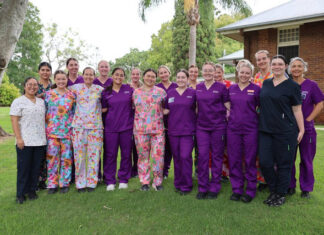Digital Edition
Subscribe
Get an all ACCESS PASS to the News and your Digital Edition with an online subscription
Midwifery graduates choose Darling Downs for career start
Thirty-nine midwifery graduates from across the country are set to kick off their career journeys with Darling Downs Health.
Under the supervision and guidance of...









